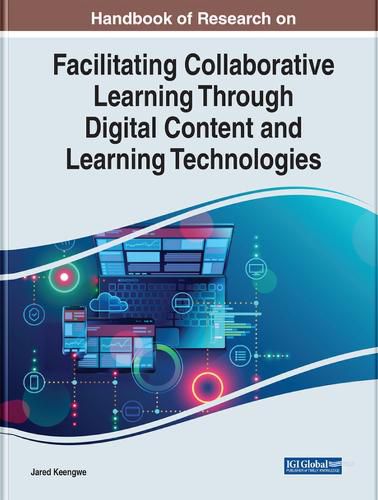Handbook of Research on Facilitating Collaborative Learning Through Digital Content and Learning Technologies

Handbook of Research on Facilitating Collaborative Learning Through Digital Content and Learning Technologies
This title is printed to order. This book may have been self-published. If so, we cannot guarantee the quality of the content. In the main most books will have gone through the editing process however some may not. We therefore suggest that you be aware of this before ordering this book. If in doubt check either the author or publisher’s details as we are unable to accept any returns unless they are faulty. Please contact us if you have any questions.
Digital content and learning technologies are now the norm at all levels of education. However, there is evidence to suggest that this digital shift is on a spectrum and the spectrum impacts learners in different ways. This means that some instructors who seek to integrate digital content may do so using traditional teaching methods while others use innovative practices to engage learners. Those who integrate innovative digital practices align their instructional practice with theories to facilitate student-centered pedagogies that support and improve the depth and scope of student learning. A primary characteristic of student-centered learning is facilitating collaborative learning using digital content and learning technologies to engage students as well as to enhance meaningful learning.
The Handbook of Research on Facilitating Collaborative Learning Through Digital Content and Learning Technologies provides K-20 educators with alternative pedagogical and andragogical models that are innovative and incorporate digital content and learning technologies that promote constructive learning. Further, this book explores the relationship between constructivist learning, digital content, and learning technologies. A primary argument in this book is that constructivist teaching strategies such as collaborative learning coupled with digital content and purposeful learning technologies could benefit student learning in ways that are different from those practiced in traditional, non-digital learning environments. Covering topics such as instructional design, self-efficacy, and library engagement, this major reference work is an essential resource for pre-service teachers, teacher educators, faculty and administrators of K-20 education, librarians, researchers, and academicians.
This item is not currently in-stock. It can be ordered online and is expected to ship in 7-14 days
Our stock data is updated periodically, and availability may change throughout the day for in-demand items. Please call the relevant shop for the most current stock information. Prices are subject to change without notice.
Sign in or become a Readings Member to add this title to a wishlist.

